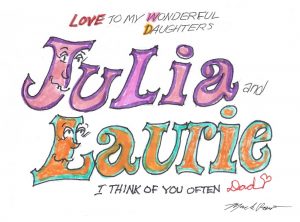
Two daughters
Love to my wonderful daughters, Julia and Laurie. I think of you often.
–Dad
A Blog About Relaxing With Doodling
You can look at these WordToons to find out what can be especially interesting.

Two daughters
Love to my wonderful daughters, Julia and Laurie. I think of you often.
–Dad
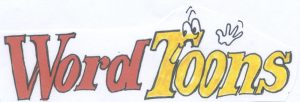
As I was doodling one day, I had an idea. Why not turn words into pictures? I imagined that a word could express itself without being in a sentence. Sounded like fun, so I tried it—and WordToons was born. I found it to be a lot of fun and doodled one or two a day for entertainment. Then it occurred to me that anyone can do this. Everybody doodles! It’s a simple idea to get a word to tell about itself—to show what it means. Or it can be funny. No special training necessary. And, since I like to teach, I imagined that I could teach anyone to do it for self entertainment. I did— to high schoolers, retirees, and jail inmates! None were artists, they certainly could doodle! And they did it in a couple of sessions. They understood that doodling is not done for a grade or for evaluation. They are done for personal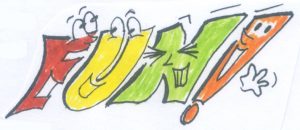
And you can too.
Here’s how it works: Begin with a white sheet of paper and a pencil
1 Start by lettering the word, run, on the paper. All caps will get you into expressing it better
2 Now Doodle it in outline large. Don’t worry about accuracy. Just doodle. Do it more than once. It’ll change as you go. That’s OK. Begin to see some action? We’ll keep going.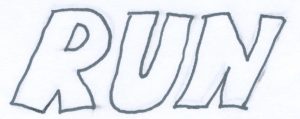 3 Now add action lines. Enlarge the letters again. You’ll see why.
3 Now add action lines. Enlarge the letters again. You’ll see why. 
4 Next let’s doodle the letters even larger and animate them with exaggeration. Add faces and hands and shoes! How fast are we going now?
5 If We want to go further, let’s add some sweat drops, hair feet.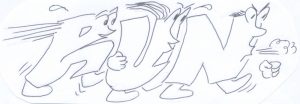
6 And now, time to erase pencil lines and then ink in with black ballpoint. You’re ready to color for the finale. You can use colored pencils, watercolor markers—double ended for choice of coloring tip sizes. Keep your color on the light side. Dark color tends to darken the details.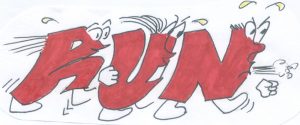
For hands just doodle three fingers and a thumb for simplicity. look at your own hands. the feet are simple quick outlines.
And all kinds of face expressions can give added meaning to your doodled wordtoons. And also try looking in a mirror.
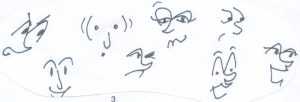
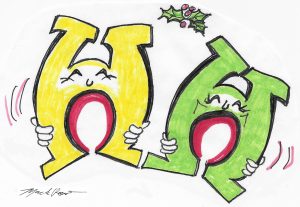
Here’s my greeting to you for Christmas. May you have a positive celebration!
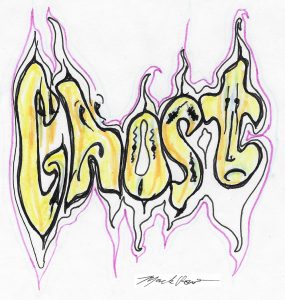
This is my WordToon participation for Hallowe’en. Boo!
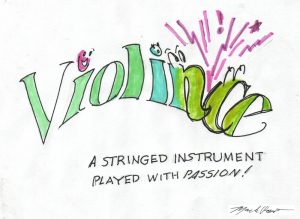
Here’s fun with a made-up word. The eyes and the action lines express the action. Can you hear the screeching?